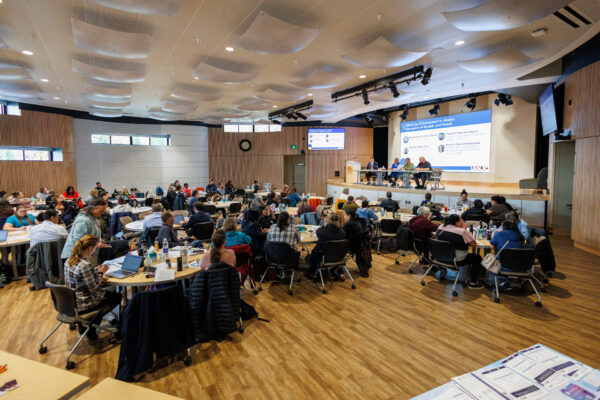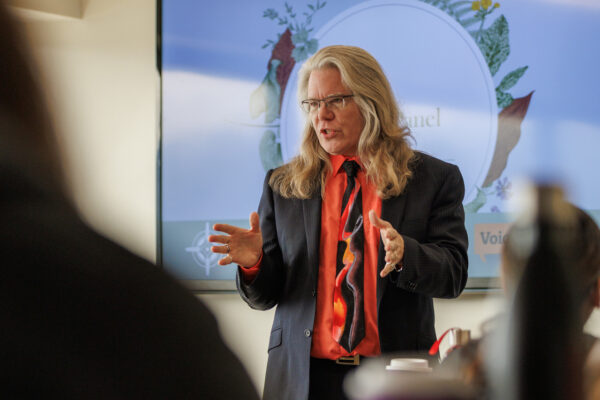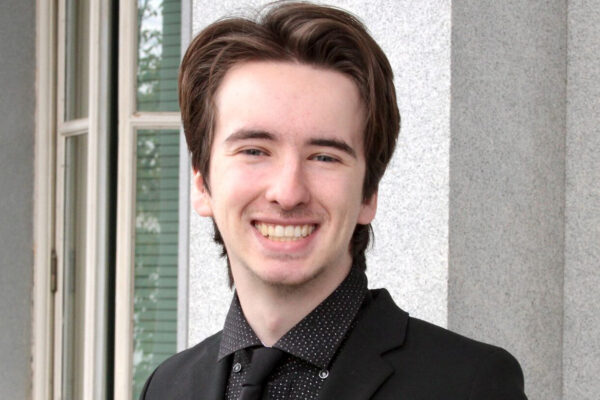Daniel Bushey learned to use his voice as a mentor after overcoming addiction and finding a familiar face at ANJC.
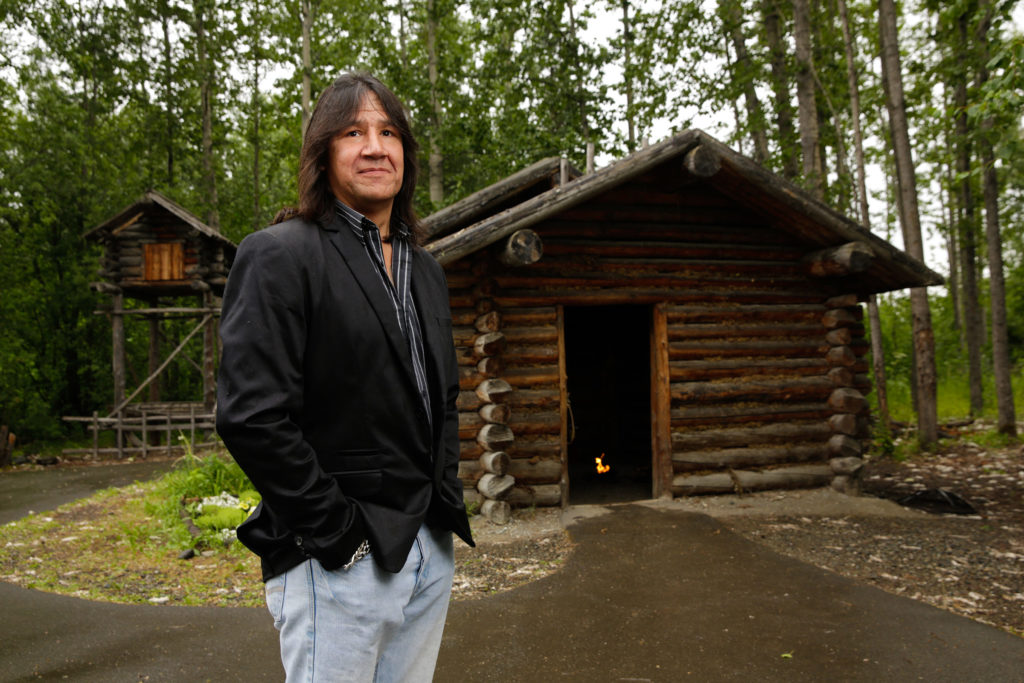
“I could stay sober, but I couldn’t deal with life” is how Daniel Bushey describes the first few years after he got out of prison. He’d served a twenty-year sentence and had gotten recovery help for his drug and alcohol addiction.
But twenty years in prison changes a person. “After that much time knowing where my bunk was, being fed — when I got out, I couldn’t adjust. I thought I could handle everything myself, but I had ADD so I self-medicated. I’ve had I don’t know how many drug violations.”
ADD, or attention-deficit disorder, had haunted Daniel even before society fully recognized it as a disorder. As a kid, he bounced around from foster home to group homes to emergency shelters after his father died. “No one would put up with me,” he recalled. “I lived on the streets after my foster family let me leave. I lived in abandoned apartments and stole cars.”
Thanks to his long history with jail time, Daniel had known his parole officer for a long time. She was the one who recommended that he seek out reentry services, which are specifically targeted toward reintegrating individuals back into society successfully, to prevent that individual from re-offending.
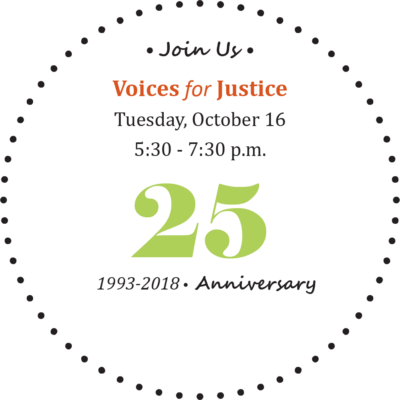 That’s when Daniel remembered seeing a sign for the Alaska Native Justice Center (ANJC), which offers reentry support in addition to social justice advocacy and family law services.
That’s when Daniel remembered seeing a sign for the Alaska Native Justice Center (ANJC), which offers reentry support in addition to social justice advocacy and family law services.
Daniel came to ANJC for help, but what he found was a familiar face.
Benjamin Briggs, now one of three adult reentry case managers with ANJC, had once served time himself — in fact, he had served alongside Daniel, who remembered him from prison. For Daniel, seeing Benny — successful, gainfully employed, now in a position of helping others — made all the difference.
“I knew Benny had been in the same place I was, so I trusted him,” Daniel shared. “Seeing Benny, it opened my eyes more to the information given to me, and I took it in. Before, when I took classes or did meetings, I didn’t want to be there — I spent the whole time looking at my watch. But now I looked forward to coming.”
Daniel took ANJC’s Moral Reconation Therapy (MRT) classes, which are designed to equip individuals reentering society after imprisonment with better decision-making, moral reasoning, and appropriate behavior. Each year, ANJC supports hundreds of individuals seeking to reestablish themselves after release. In 2017, the organization was successful in connecting 52 percent of its reentry population with healthcare and behavioral health services; 48 percent became gainfully employed or began working toward educational goals.
Daniel also attended an ANJC support group and worked with his case manager, Nelly Perez, and with Benny as his peer-mentor as he maintained his sobriety, found work, and got in good standing with his parole officer. With the assistance of ANJC, and through his own determination, Daniel transformed his life so completely that at a court hearing, even the prosecutor had to admit about him: “This is a changed man.”
Today, Daniel has followed in Benny’s footsteps, becoming a mentor himself. “There’s guys in jail right now who could use my story. I changed. I did twenty years in prison and I’ve lived a rough life. I still have my struggles. But if I can inspire someone else — if they can see I’m succeeding, maybe they will, too.”
Daniel has his own business, now, and he uses it to give men like him that second chance they need after leaving prison. At Bushey Madness Automotive, men learn mechanical skills and make a living repairing cars under Daniel’s guidance.
“If I can help someone who’s struggling, maybe it can show them — you can’t give up,” he said. “ANJC doesn’t give up, so I’m not giving up, either.”

